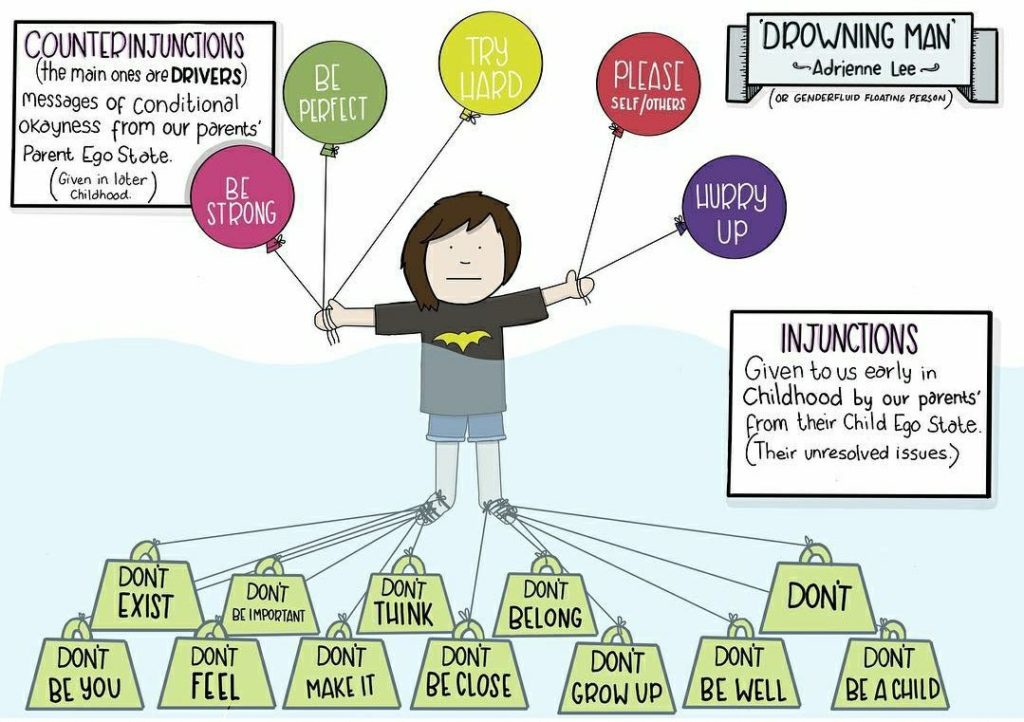
Parental teaching often happens at an unconscious level: when parents are excited by and approve a child’s behaviour, the messages they give are often permissions; however, when parents feel threatened by a child’s behaviour, the messages expressed are often injunctions.
Permissions are just as the word implies – giving the child permission to do something. For example, “Do think”; “Do ask for what you want”. They are the opposite of injunctions.
Injunctions are prohibitions or negative commands from a parent (often outside their awareness). They are expressions of disappointment, frustration, anxiety and unhappiness which come out of the parent’s own pain.
Injunctions establish the “don’ts” by which children learn to live. These messages are predominantly given nonverbally and at the psychological level between birth and seven years of age.
Counter-injunctions
When parents observe their children not succeeding, or not being comfortable with who they are, they attempt to “counter” the effect of the earlier messages with social level counter-injunctions. They convey the “shoulds”, “oughts” and “dos” of parental expectations.